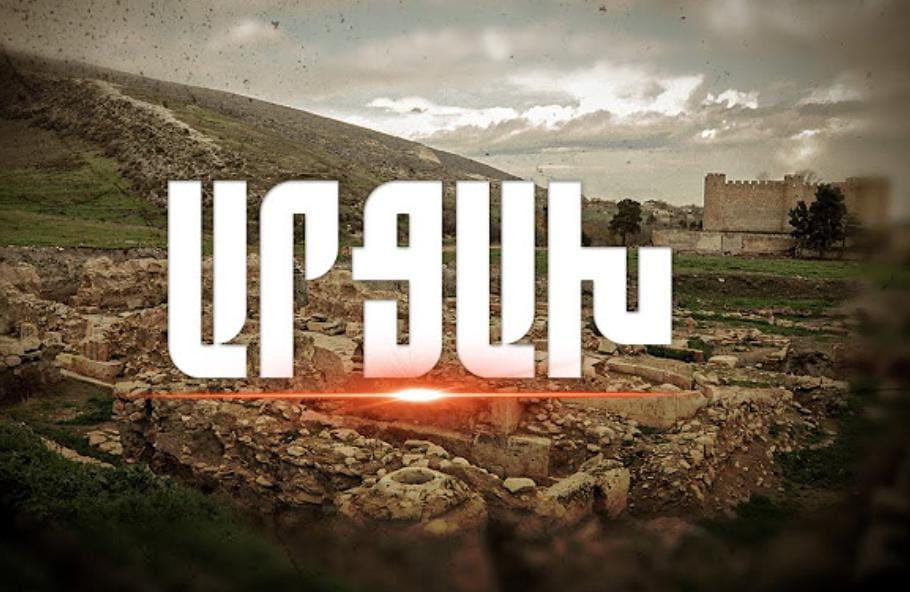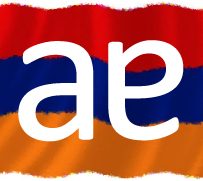
‘The main problem is to keep the issue of the return of Artsakh residents to Artsakh on the international agenda,’ said Giro Manoyan, who heads the Hay Dat (Armenian National Committee) network, during the “Return” event organised by the ARF Dashnaktsutyun -Armenia. According to Giro Manoyan, given the well-known position of the government of the Republic of Armenia on the rejection of Artsakh and the closure of the Artsakh page, he argues that this issue can be removed from the international agenda and that the Diaspora and the Artsakh leadership can do a lot for this.
On 2 September, the ARF Dashnaktsutyun-Armenia organised a ‘Return’ event dedicated to the 33rd anniversary of the independence of the Republic of Artsakh. The aim was to draw on the advice of this historic day in the difficult situation it created, and to present approaches and proposals concerning the challenges and political solutions to the Artsakh problem, responsibilities at national level and the realisation of the inalienable rights of the Armenians of Artsakh.
The event was attended by the President of Artsakh, Samuel Shahramanian, opposition members of the National Assembly of the Republic of Armenia, the leader of the ‘Tavushe for the Fatherland’ movement, Mgs Bagrat Galstanyan, political figures from the Republic of Armenia, and representatives of various spiritual and public circles.
The event began with a minute’s silence. Those present paid tribute to the memory of those who died in the Artsakh wars. The anthems of the Republics of Armenia and Artsakh were then played.
The opening ceremony was presided over by the Prelate of the Diocese of Artsakh, Mgr Vrtanes Abrahamyan, who blessed the event.
‘September 2 is a testament to the faith of all in the heroic will and national unity of our faithful people. The independence of the Republic of Artsakh is one of the clearest manifestations of the freedom of our people and their just desire to live under a peaceful sky, which has its rightful place in the thousand-year-old history of Armenia,’ he declared.
‘At the end of the 1980s, the movement for Artsakh, whose aim was the reunification of Armenian Artsakh with the Motherland in a peaceful manner, remaining faithful to the international principles of human rights, unfortunately received a violent response from Azerbaijan. However, the indomitable will of my nation did not allow the legitimate demands of our people to be stifled…’.
The Bishop of Vrtanes, Mgr Abrahamian, stressed in his speech that the question of Artsakh is by no means closed.
‘The duty of all national public and political forces today should be to ensure the right to a dignified life in Armenia for the people of Artsakh. Our brothers from Artsakh should not feel like foreigners in their homeland, but like full citizens of their homeland’, he declared.
Aram I Catholicos of the Great House of Cilicia’s message was relayed.
Gagik Baghunts, acting president of the Artsakh National Assembly, and Ara Puluzyan, representative of the Central Committee of the Artsakh ARF, announced that we have a long struggle ahead of us. It is no coincidence that the theme of this event is Return. The most important stage in the current phase of the Armenian people’s liberation struggle is the return. No one can deny us the right to live, develop and prosper in our homeland. There is only one way to achieve this right, according to most people’s opinion, but the process of discussing it on the international stage and presenting it as legitimate is also essential and has no end date.
We rested in our Homeland. We arrived with the faith and conviction that we will liberate the occupied part of the Motherland, Artsakh. However, until that blessed day, the exiled Armenians must be provided with dignified and socially secure living conditions, which is also part of our daily attention and work.
The main thing is to get organised. The state is the best system of public organisation. It is necessary to maintain Artsakh’s state bodies, in particular the system formed democratically through elections, viable both to ensure internal organisation and to assume the role of a representative body on the external front.
A long road of struggle lies ahead. During this process, each of us may stumble, pain may overcome us, we may hesitate for a moment, we may doubt, but the important thing is that our comrades in arms and our friends do not allow us to remain halfway, we must recover and continue on our way. Let us support each other, let us never bow to deceit and lies, let national dignity and the just struggle for justice be the meaning of life and the source of vitality for us all.’
Gevorg Ghukasyan, Head of Special Programmes at ARF Dashnaktsutyun’s Hay Dat (Armenian National Committee) Central Office, stressed that Azerbaijan cannot digest its counter-intervention war. ‘Since September 2020, the global network of the Armenian Cause, in very unfavourable conditions of international relations, has been regularly forced to implement tactical changes in political priorities and main directions of activity, which has confronted it with new situational problems.
The current priorities of the Hay Dat (Armenian National Committee) network are as follows:
- The realisation of the right of return of the Armenians of Artsakh,
- The release of Artsakh’s military-political leaders and other prisoners,
- The application of sanctions against Azerbaijan,
- The provision of humanitarian assistance to the Armenians of Artsakh,
- The provision of economic and military-political assistance to Armenia, in order to prevent further aggression by Azerbaijan,
- Investigating human rights violations and launching international legal and political processes,
- The creation and support of international and regional platforms, such as ‘Europeans for Artsakh’,
- Preservation of Artsakh’s historical and cultural heritage,
- Raising awareness in the international community through conferences, discussions and mutual visits by Armenian and international delegations.
Behind each of them lies unique, complex and long-term work, the results of which are sometimes the only ones published.
The result of recent actions:
- In the United States of America, for the first time in the last 22 years, Section 907 of the Freedom Assistance Act came into force, prohibiting any assistance from the US government to Azerbaijan. In addition, in December 2023, Congress unanimously passed S. Res. 3000, with the aim of eliminating presidential authority to circumvent S. Res. 907. At present, a dozen projects of importance to us are being processed in Congress.
- On 19 September, a fairly representative demonstration is planned at the US Congress, the main theme of which will be American leadership in guaranteeing the right to return. On the same day, the Artsakh Human Rights Defender will address the Congressional Human Rights Committee.
- Thanks to the actions of the Armenian Dat Europe office, the European Parliament is perhaps the most objective international body on the Karabakh problem, whose political positions have resulted in the adoption of more than a dozen documents directly or indirectly linked to Artsakh in recent years. With very cautious optimism, we would like to note that there is a change in the positions of the EU executive, particularly in the context of Armenian security and the right of return of the Armenians of Artsakh.
- There is every reason to believe that in the near future we will see further political and propaganda successes at pan-European level.
- As a result of the targeted activities of the Armenian Committee of Canada, which have even led to a state investigation, the Canadian government is applying an embargo on the export of military products to Azerbaijan.
- In recent months, two major international relations centres have received documents calling for the application of sanctions and legal penalties against 42 representatives of Azerbaijan’s military and political leadership, which are currently being processed.
- Similar work is continuing with the relevant departments in a number of countries, in cooperation with other human rights organisations.
Main source: aravot.am

